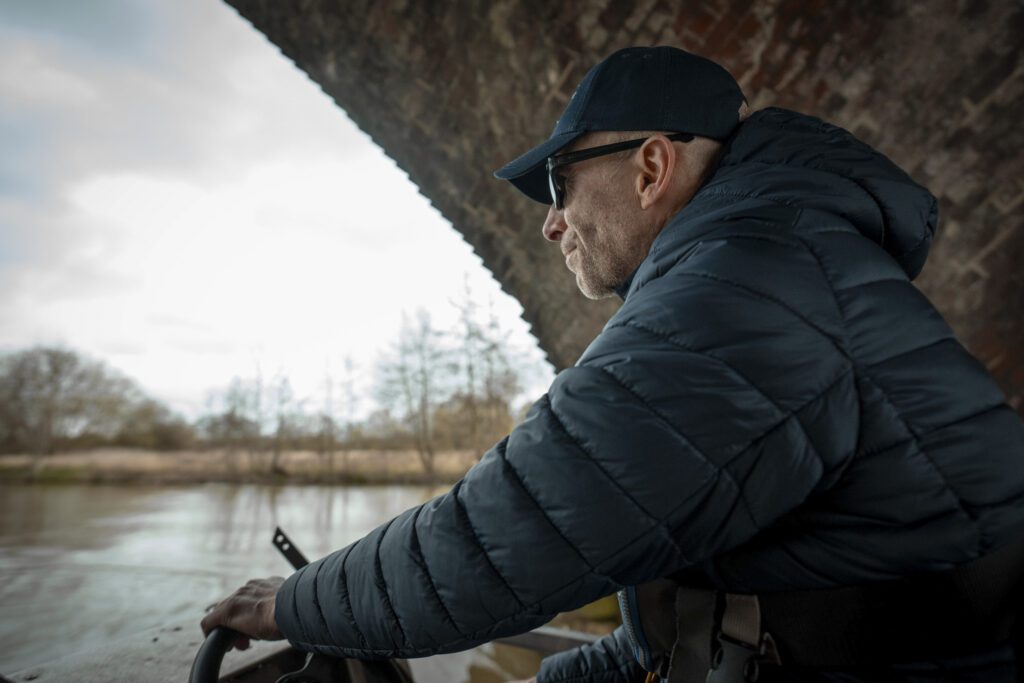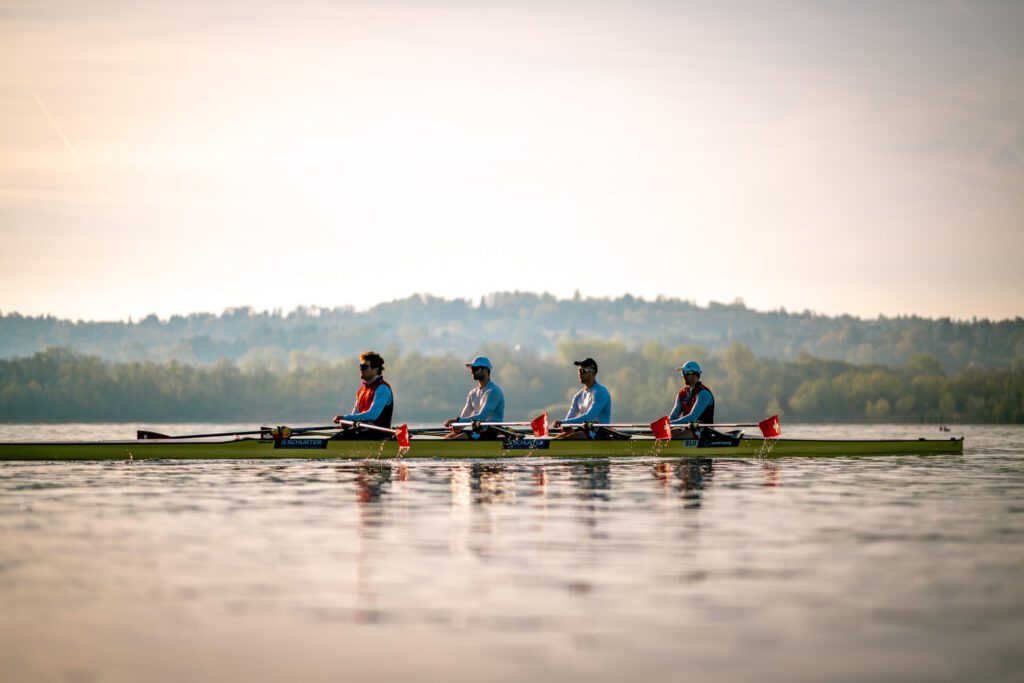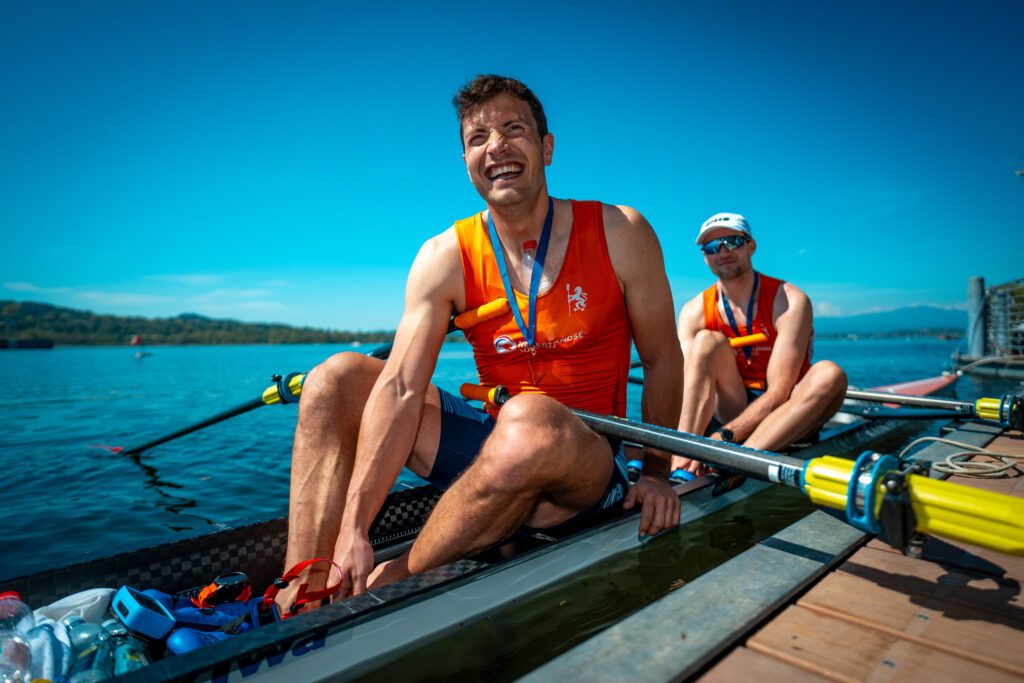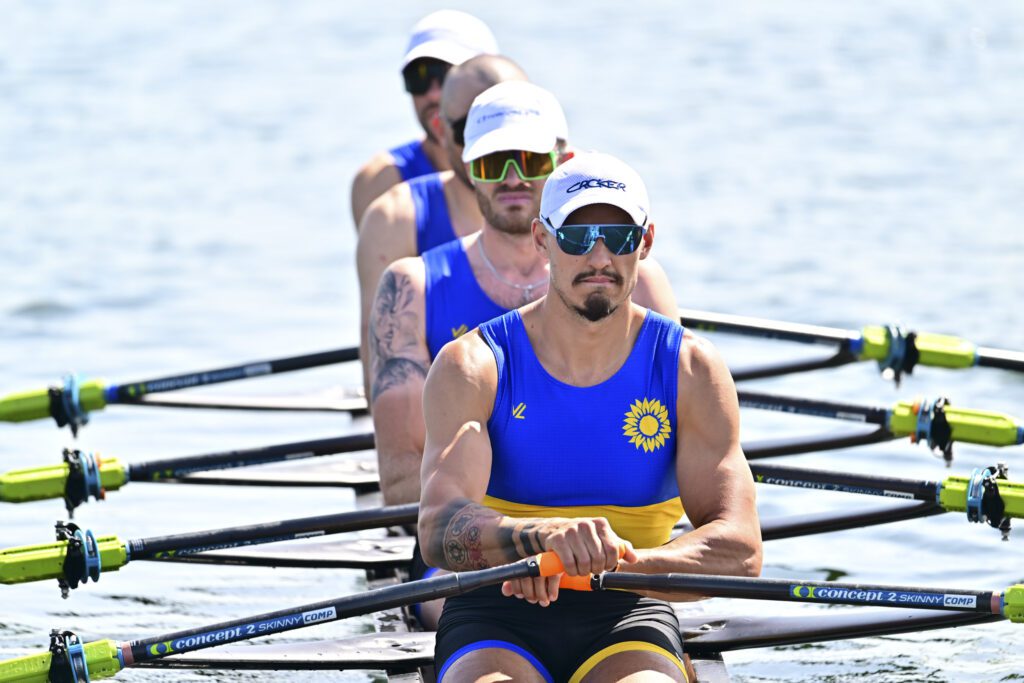Just over ten years ago former Latvian sculler Sanita Puspure was out with the family, going with son Patrick and husband Kaspar to Dublin Zoo in Ireland where they now lived. Losing their way, they ended up beside the river Liffey near the local rowing clubs. A seed of an idea germinated in the pregnant Puspure and, after her daughter Danielle was born, she realised she wanted to get back in a boat again.
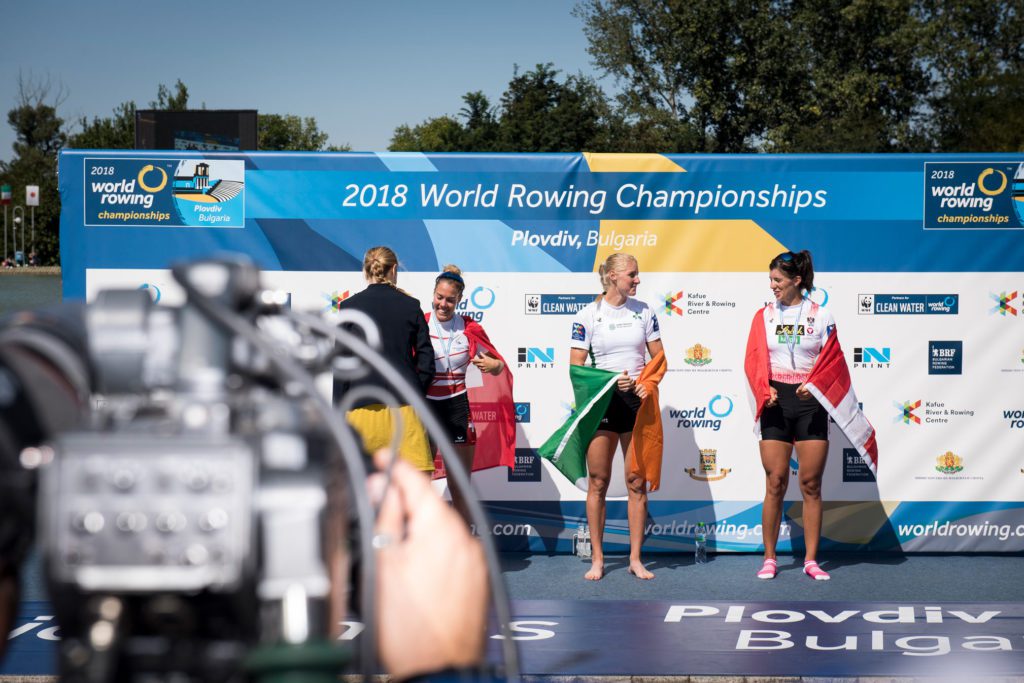
Photo Puspure wins gold at the 2018 World Rowing Championships, Plovdiv, Bulgaria.
Credit Benedict Tufnell
A successful junior sculler in Latvia, Puspure had given up rowing after marrying, a change which seemed entirely natural at the time. “I thought that’s my career over, moving on to a different chapter in my life. And also back in those years transition to the senior rankings wasn’t as easy, there wasn’t as much support [in Latvia].” She started employment, as a receptionist in a hotel and then training and working as a police officer. She and Kasper followed the rowing keenly — “My friends were still competing then, and I think once you row you always have that interest in the sport” — but from their sofa.
Then they moved to Ireland in search of work and opportunities, discovering that she was pregnant with their first child in the very same week they landed in a new country. It was a challenge, starting a family with all their relatives three thousand miles away. A few years later, after that zoo visit and their daughter’s birth, Puspure started sculling again.
“It was kinda like a dreamy idea but it became reality after all.”
Sanita Puspure
“It was just kinda to have a break on the water from children and all that,” she explains. “Having some time to meself, and trying to lose a bit of weight and so on. But it took over very quickly. I remember during the summer already thinking ‘just get an Irish passport, you could go to the Olympics. It was kinda like a dreamy idea but it became reality after all.”
Her first international race for Ireland and after a six-year break from the sport was in 2010, eventually coming 16th at the Lucerne world cup. After a brief 2011 sojourn in the double she has been in the single ever since, rising steadily but surely up the rankings. She made her first senior A-final in 2012 and won her first top-grade medal, a European bronze, in 2014. This year she continued to push herself and when she arrived at the world championships, setting the quickest time in the heats with ease and then doing it again in the semi-finals, she looked like the only one who could take down reigning champion Jeannine Gmelin.
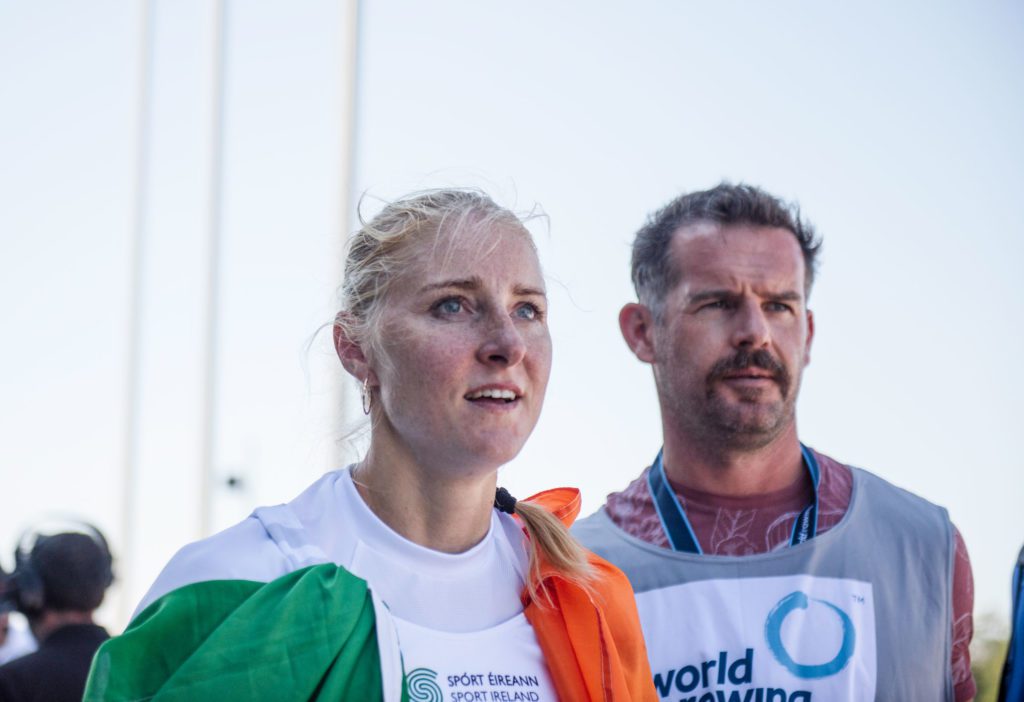
Photo Puspure in Plovdiv at the 2018 World Rowing Championships.
Credit Benedict Tufnell
In the final, sculling with total confidence and smooth power, Puspure took the race by the scruff of the neck and never let Gmelin have a chance. “It’s my first [world championship medal] and it’s a gold!” she said after the race, barely believing the outcome. It’s also Ireland’s first ever openweight world singles gold, beating into a cocked hat the M1x silver won by much-lauded sculler Sean Drea in 1975.
This season has been a turning point for Puspure, who had her funding cut last year and had to cope with losing two consecutive coaches in two years – Don McLachlan and Sean Casey, each of whom failed to have their Rowing Ireland contracts renewed. Her understandably frustrated tweet about the second departure landed her briefly in hot water with the governing body last January, but despite this she has been piecing together a winning strategy.
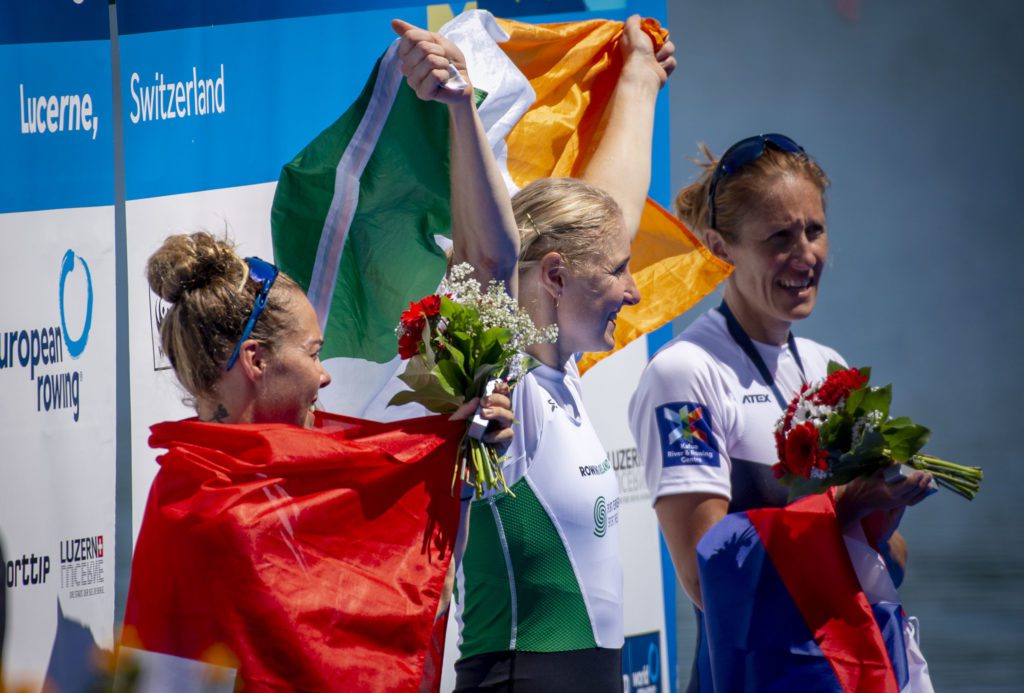
Photo Puspure after winning gold at the 2019 European Rowing Championships in Lucerne, Switzerland.
Credit Benedict Tufnell
“I’ve been there or thereabout but never the very top of it,” she says. “I’ve always considered myself to be that chasing boat, trying to do the best that you can, but not going to win.” She and her coaches have been working on every detail. “The biggest change is the training programme, definitely. It’s given me an extra gear that I didn’t know I could have before. Because I thought I was training hard before, but now I see I haven’t had this programme. And it was the nutrition as well. I was under-eating and that’s probably why I was getting ill so often. We started looking at all the calorie intake and expenditure and it did show that I was using up quite a lot in the day, obviously the body couldn’t cope with the load. So now we’re looking after it a bit better.”
She also credits those who have guided her for the last decade. “I’ve had so many coaches over the years as well, and I’ve been relying on them a lot. But since last year working with Sean Casey he really taught me how to be a bit more independent and trust myself a little bit more as well. So that’s why this year I’m keeping things simple. I have developed quite a lot of technical skill over the years, taking pieces from all the coaches I’ve been working with, right back to the first ones I had in Ireland. It seems to be coming together now, it’s the right time.”
There are theories suggesting that female athletes’ power to weight ratios and endurance improve after giving birth, which Puspure suspects make sense. One tell-tale has been her erg score. “Funnily enough when I did my erg test about 5-6 months after restarting training, I did the same score that I did when I was sort of in my prime at under-23 level. I actually did even better. So I wondered what I could do if I trained more. When I got under 7 [minutes] it was ‘oh wow, I never thought I was gonna do that’. Then 6:50 ‘oh my god this is amazing”. Suddenly I could pull all these scores.” Her best is now 6:36.7 — the all-time Irish 2km record, not too shabby.
“I always had a good feel for the water when I was a junior”
Sanita Puspure
That brute force wasn’t initially helpful. “I always had a good feel for the water when I was a junior, because I would be on the lighter side as an athlete,” says Puspure. “But then I got all this power and I probably started pulling too much. In the last few years I think I’ve improved and gotten better technically again.”
The rock of her world is Kaspar, a secondary school teacher who takes up the slack with their two kids, now 10 and 11, whenever needed. “In fairness he is doing quite a lot,” Puspure admits. “It isn’t as hard as it was when the kids were a lot smaller, because there were different pickup times from school. I had time to train but I didn’t have much time to recover because I had to collect one of the kids, then go back home and pick up the other one, it was never-ending. Now the kids are more grown-up and can look after themselves a bit more.”
Nevertheless she still feels the wrench when obliged to go away on training camp. “It doesn’t make it any easier to leave them for three weeks. I feel anxious before I leave and then I almost feel I’ve been ripped away from the family. You’re not there, you’re not in control, you can’t do anything.”
One impact is that the Puspures haven’t been able to go on a proper holiday this year: husband and kids all had to return to school the day after Puspure won her gold medal and before that she was training single-mindedly non-stop. A short post-Plovdiv break, being able to get up “not in a rush to get anywhere”, to sort out her kit wardrobe and perhaps do a few domestic chores, is now over. That’s the only rest Puspure has had, and that’s assuming her media obligations didn’t quadruple after the historic win (which, of course, they did).
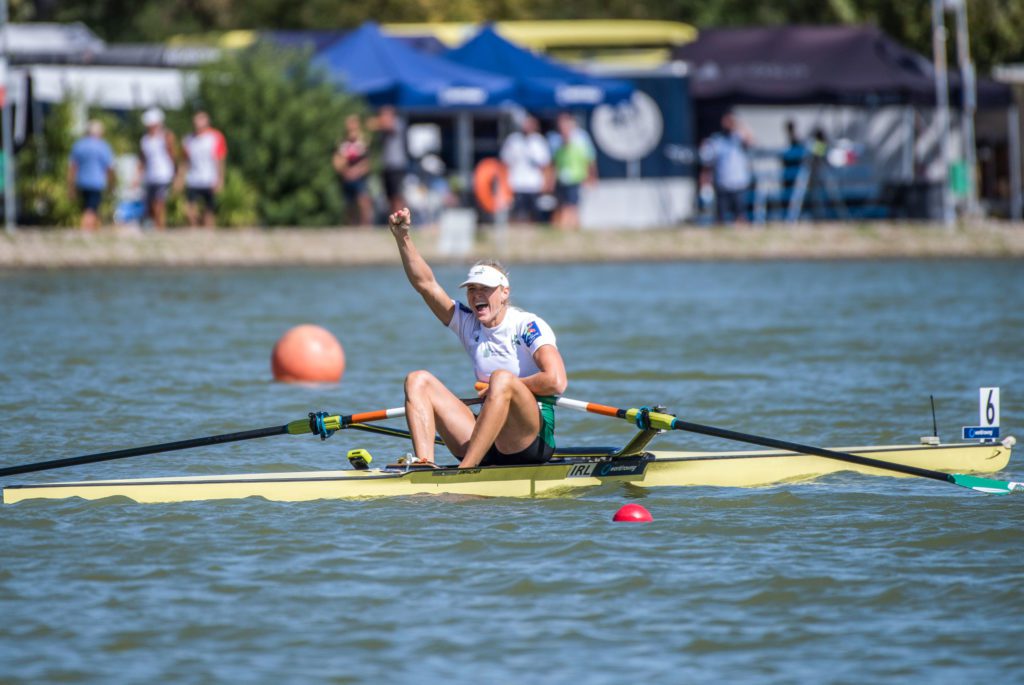
Photo Puspure after winning the 2018 World Rowing Championships, Plovdiv, Bulgaria.
Credit Benedict Tufnell
This summer is not the end of it for Puspure: there is unfinished business. After that initial return to her sport, the ambition to compete and win a medal at the Olympics began to burn. Reaching the London Games in 2012 was a dream come true, but finishing 13th felt flat.
Four years later in Rio Puspure’s ambition had risen much higher. With European bronzes in her pocket and repeated A-final appearances, she went to Brazil knowing she could reach the final despite once again having to qualify via the final June regatta. But the unusually bumpy water of the Lagoa threw a spanner into everyone’s works and resulted in top scullers producing completely uncharacteristic times in the opening heats. Puspure found herself in the quarter-final from hell alongside Ekaterina Karsten, Jingli Duan and eventual winner Kim Brennan. Fourth place banished her to the C/D semis despite her time being enough to beat all but one of the other A/B semi-finalists. She won the C-final – of course – but it was no consolation.
And now, in what were also very tricky conditions, Puspure is on top of the world. Make no mistake, Gmelin will be on the warpath to regain her title and there are dangerous characters like Magdalena Lobnig, Kara Kohler and a returning Vicky Thornley in the mix. The work is not yet done. Any slip-up could put Puspure into qualification purgatory once more. But after this coronation in Plovdiv, her confidence is going to be sky-high.
This article first appeared in

